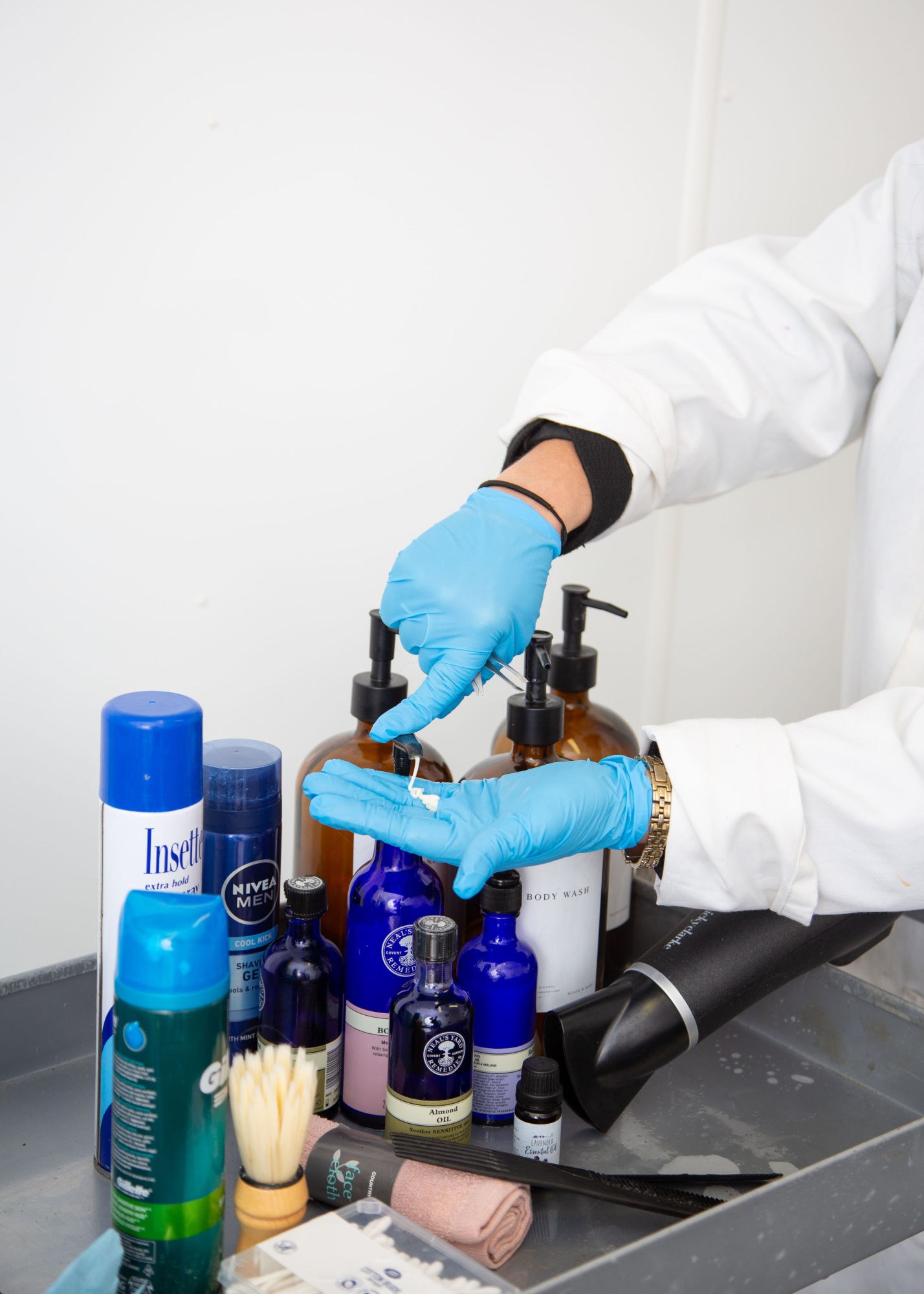Why do we use essential oils within our mortuary?
The use of herbs and essential oils, with the deceased, can be traced back to Ancient Egypt and was also used by the Pagans.
At Tom Owen and Son, we believe it is really important to use essential oils within our mortuary as part of our care of the deceased. Essential oils are extracts from plants and aromatherapy is the practice of using them for therapeutic benefit.

The use of essential oils with the deceased, is an ancient practice. Historically, herbs were used to deodorise the body and fragrance the room where the body would be laid to rest.
Tom Owen and Son, use essential oils purchased from Neals Yard Remedies, to massage into the skin of the people who have died, once they have been washed. This ensures their skin is soft and moisturised, before we dress them. The scents we use would also still be present, if you chose to visit the person that has died, in our Chapel of Rest based in Llandudno, North Wales.
We understand that visiting a funeral home can be a daunting place, especially if you have never been to one before. Therefore we feel that the use of essential oils can help to provide a calming environment, if you are visiting our chapel of rest.
Essential oils have many qualities, and our mortuary assistant has a keen interest in aromatherapy, so is perfectly placed to make her own blends.
The key essential oils that can be used include:
Neroli oil
Neroli oil is an essential oil extracted from the flowers of bitter orange trees (Citrus aurantium var. amara). Neroli oil is said to help rid unexpressed anger, fear and stress. If you feel out of control or overwhelmed with grief since the person has died, using Neroli oil can help.
Myrrh oil
Myrrh has long been used in traditional Chinese and Ayurvedic medicine for pain, infections, and skin sores. Myrrh oil is said to help keep you calm and centred, which is essential when you are in the process of planning a funeral. It is said to help with controlling emotions.
Ylang Ylang oil
Ylang ylang is a pleasant scent that can help give feelings of happiness and a connection to others. While losing someone can be sad, there is also hopefulness to be able to help focus on dealing with your grief. Ylang Ylang oil is said to help with processing your emotions.
Cedarwood
This has been associated with the preparation of the deceased since Egyptian times, where the oil was used for embalming. It is also said to repel insects.
Cedarwood is said to protect the body against harmful bacteria, facilitate wound-healing and help with the discomforts of muscle aches, joint pain or stiffness.
Cloves
It was common to place cloves in the folds of the shrouds to help ward off any odours or smells.
Frankincense
Frankincense, used as far back as Ancient Egypt, is known as “The King of Oils” due to its versatility. Its scent is earthy yet uplifting, with a slightly sweet, woody aroma. Frankincense is believed to promote a sense of peace, relaxation and grounding, making it the perfect companion for getting into a meditative, spiritual state. It has been known to be used in rituals and when worshipping.
Lavender
Lavender is a very popular and versatile essential oil that is said to promote relaxation, treat anxiety and has anti-inflammatory, antifungal, antidepressant, antiseptic and antibacterial properties.
Peppermint
Peppermint oil is great for deodorising the body due to its strong scent.
Sandalwood
Sandalwood is used widely in India as it is believed to carry prayers and spirits to heaven. When used on the skin, it is said to help manage anxiety, has anti-inflammatory properties, and helps guard against bacteria.
Rosemary
Rosemary oil has antiseptic properties, is great for improving your mood and the appearance of hair.







